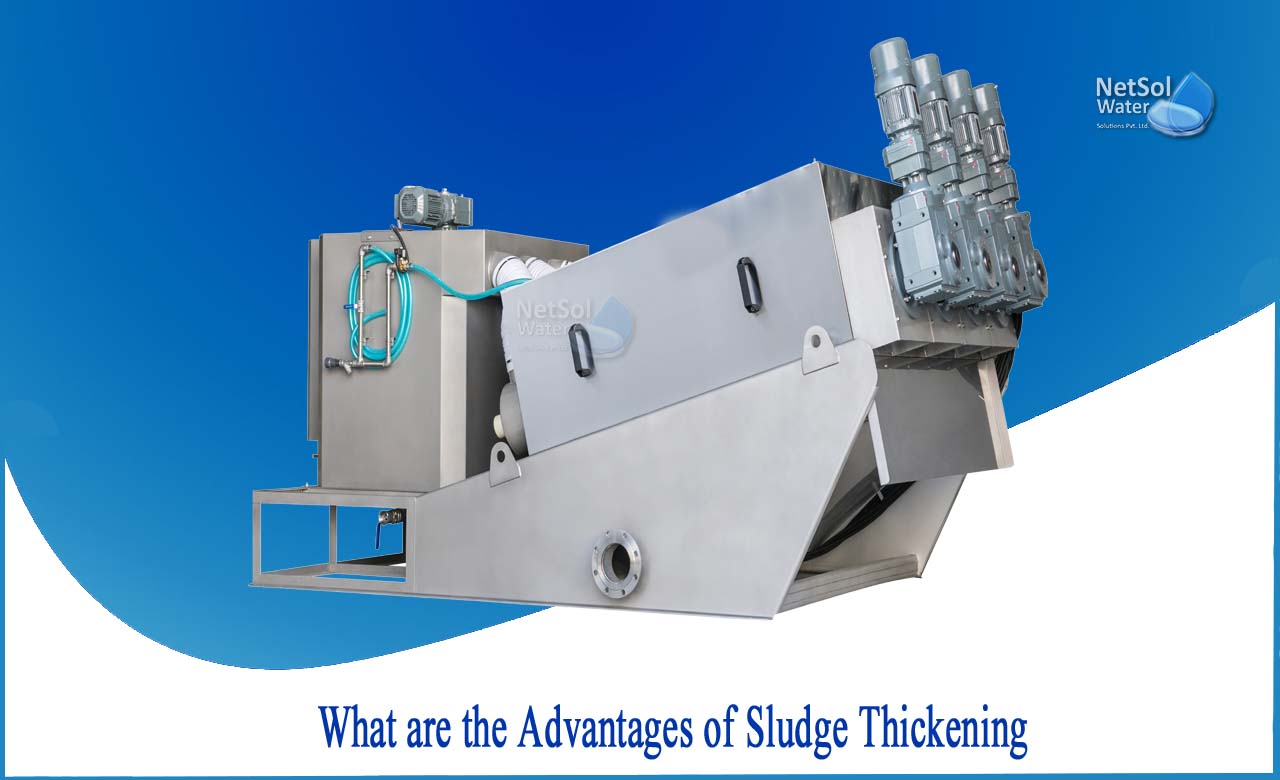What are the advantages of Sludge thickening?
Raw sludge is untreated unstabilized sludge, which can be taken from the wastewater treatment plants. It tends to acidify digestion and produces odour.
Primary sludge is generated from chemical precipitation, sedimentation, and other primary processes, whereas secondary sludge is the activated waste biomass which results from biological treatments. Some sewage plants also receive septage or septic tank solids from household onsite wastewater treatment systems.
In some sewage sludge treatment plants, there are three basic biological treatment methods: the trickling filter, the activated sludge process, and the oxidation pond. A fourth, less common method is the rotating biological contactor.
Advantages of sludge thickening
Sludge thickening can be a viable solution for proper sludge management.
Discovering the five important benefits of sludge thickening-Here goes the list!
1. Cost reduction
Purifying sludge residues from water treatment, costs thousands of rupees each year. Traditional wastewater and water treatment methods can produce large amounts of destructive material in municipal water supplies. When this mud gets out of hand, it can increase costs, raise taxes, and affect both businesses and locals. Much of the cost is due to the associated storage and shipping requirements.
To reduce these costs, it is important to use engineering applications such as drainage. Sludge dehydration helps reduce disposal costs by reducing the amount of water-saturated soil. It can also help reduce cost around 75 to 80 percent of transportation and storage expenses. But, you can save the city or your company money when you use delivery systems that use thickening techniques in bulk.
2. High productivity
When sludge thickening is used to treat water and wastewater, productivity typically increases. For example, textile companies that dye fabrics need large amounts of clean water to produce colourful products such as jeans and pillows.
Production residues can be discharged into sludge that can destroy the foundation of the building. If this sludge is not treated efficiently, the site may be shut down and productivity may be disrupted. However, sludge thickening technology can be used to prevent these problems.
3. Environmentally friendly
Although some water treatment applications offer agility but many lack sustainability. Large city water treatment plants and industrial companies sometimes use treatment methods that use large volumes of water. Furthermore, the disposal of the waste requires heavy machinery, large amounts of energy, and transportation methods that often rely on gases that contribute to carbon emissions. Applying thickening techniques that use organic chemicals, such as flocculants, reduces some of environmentally harmful practices, making sludge thickening a sustainable technical application.
4. Improved performance
Sludge dehydration for the disposal of sludge deposits from minerals or organisms can significantly improve the performance of the disposal process compared to traditional methods. Sludge dehydration agilely treats various types of sludge, including slimy sludge and oily sludge. It also improves performance by eliminating the need to store sludge and thickeners.
5. Saves Buildings
When the ground is submerged in water from snow spills or torrential rains, it can accumulate on the foundations of buildings and corrode their foundations. This is a big problem for buildings, especially those over 50 years old. Creating drainage channels to reduce soil saturation is not a good solution for historic buildings that need to maintain their original appearance. However, you can use sludge drainage techniques to remove destructive moisture from the ground while maintaining the foundation of the building.
Conclusion
Sludge thickening is the best engineering application when it comes to the final stages of wastewater and water treatment. By using this efficient method, industrial and municipal water and wastewater treatment plants can improve performance, increase productivity and reduce costs.
How can Netsol Water help?
Netsol is India’s leading water and wastewater treatment solution company which covers all the needs of any water treatment scheme on all levels. We have the expertise to provide wastewater solutions at domestic, industrial and municipal level.
Netsol Water is Greater Noida-based leading water & wastewater treatment plant manufacturer. We are industry's most demanding company based on client review and work quality. We are known as best commercial RO plant manufacturers, industrial RO plant manufacturer, sewage treatment plant manufacturer, Water Softener Plant Manufacturers and effluent treatment plant manufacturers. Apart from this 24x7 customer support is our USP. Call on +91-9650608473, or write us at enquiry@netsolwater.com for any support, inquiry or product-purchase related query.



